APS 2011 Election
The 2011 election slate includes the APS President-Elect and two Board Members-at-Large. Details about each candidate are listed below and are repeated in the online ballot. The election will close April 6, 2011.
Click here to vote
Candidates for President Elect
Richard R. Bootzin, University of Arizona
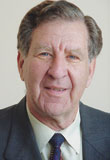 Richard R. Bootzin is Professor of Psychology at the University of Arizona. He previously served on the APS Board of Directors from 2004 to 2007. He is recipient of the 2008 Mary A. Carskadon Outstanding Educator Award from the Sleep Research Society and the 2011 Distinguished Scientist Award from the Society for a Science of Clinical Psychology. Bootzin has coauthored successful textbooks for introductory psychology and abnormal psychology and is a frequent reviewer for NIH and NASA in the U.S., and for several international funding agencies. He is president of the board of the Psychological Clinical Science Accreditation System, a new organization, growing in influence, that strengthens the role of psychological science within clinical training programs. Best known for his research on sleep and insomnia, Bootzin’s recent research interests have extended to the bidirectional impact of sleep on performance, health, social interaction, memory, language-learning in infants, and life-span development.
Richard R. Bootzin is Professor of Psychology at the University of Arizona. He previously served on the APS Board of Directors from 2004 to 2007. He is recipient of the 2008 Mary A. Carskadon Outstanding Educator Award from the Sleep Research Society and the 2011 Distinguished Scientist Award from the Society for a Science of Clinical Psychology. Bootzin has coauthored successful textbooks for introductory psychology and abnormal psychology and is a frequent reviewer for NIH and NASA in the U.S., and for several international funding agencies. He is president of the board of the Psychological Clinical Science Accreditation System, a new organization, growing in influence, that strengthens the role of psychological science within clinical training programs. Best known for his research on sleep and insomnia, Bootzin’s recent research interests have extended to the bidirectional impact of sleep on performance, health, social interaction, memory, language-learning in infants, and life-span development.
Joseph E. Steinmetz, The Ohio State University
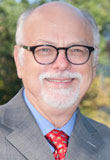 Joseph E. Steinmetz is Executive Dean and Vice Provost of Arts and Sciences and Professor of Psychology and Neuroscience at The Ohio State University. He was previously Dean of Liberal Arts and Sciences and Distinguished Professor of Psychology and Molecular Biosciences at the University of Kansas and Chair and Eleanor Cox Riggs Distinguished Professor of Psychology at Indiana University. He is a past member of the APS Board of Directors, a Fellow of APS and APA, and a member of the Society of Experimental Psychologists. Steinmetz is the recipient of the Troland Research Award from the National Academy of Sciences (U.S.) and the W. Horsley Gantt Medal from the Pavlovian Society. His research interests have been in the general area of the neural substrates of learning memory, especially in studying how the brain encodes simple forms of associative learning and how basic associative learning paradigms can be used to study behavioral and neural correlates of clinical disorders.
Joseph E. Steinmetz is Executive Dean and Vice Provost of Arts and Sciences and Professor of Psychology and Neuroscience at The Ohio State University. He was previously Dean of Liberal Arts and Sciences and Distinguished Professor of Psychology and Molecular Biosciences at the University of Kansas and Chair and Eleanor Cox Riggs Distinguished Professor of Psychology at Indiana University. He is a past member of the APS Board of Directors, a Fellow of APS and APA, and a member of the Society of Experimental Psychologists. Steinmetz is the recipient of the Troland Research Award from the National Academy of Sciences (U.S.) and the W. Horsley Gantt Medal from the Pavlovian Society. His research interests have been in the general area of the neural substrates of learning memory, especially in studying how the brain encodes simple forms of associative learning and how basic associative learning paradigms can be used to study behavioral and neural correlates of clinical disorders.
Candidates for Member-at-Large (Slate 1)
Jacquelynne Eccles, University of Michigan
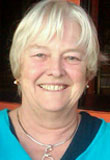 Jacquelynne Eccles is the Wilbert McKeachie and Paul Pintrich Distinguished University Professor of Psychology and Education and a research scientist at the Institute for Social Research at the University of Michigan. She is past chair of the advisory committee for the behavioral and social sciences research directorate at the U.S. NSF and the MacArthur Foundation Research Network on Successful Pathways through Middle Childhood. She is past president of the Society for Research on Adolescence (SRA) and Division 35 of APA and was a member of the MacArthur Foundation Network on Successful Adolescent Development, and has been the recipient of several major awards. She was elected to the National Academy of Education in 1998. Her research interests focus on the development and socialization of psychological influences on motivation, activity choice, and engagement. She is particularly interested in the role that social/collective identities linked to gender and race/ethnicity and personal identities play in individuals’ life plans and choices. She is also interested in the role of agency and structure in life span development.
Jacquelynne Eccles is the Wilbert McKeachie and Paul Pintrich Distinguished University Professor of Psychology and Education and a research scientist at the Institute for Social Research at the University of Michigan. She is past chair of the advisory committee for the behavioral and social sciences research directorate at the U.S. NSF and the MacArthur Foundation Research Network on Successful Pathways through Middle Childhood. She is past president of the Society for Research on Adolescence (SRA) and Division 35 of APA and was a member of the MacArthur Foundation Network on Successful Adolescent Development, and has been the recipient of several major awards. She was elected to the National Academy of Education in 1998. Her research interests focus on the development and socialization of psychological influences on motivation, activity choice, and engagement. She is particularly interested in the role that social/collective identities linked to gender and race/ethnicity and personal identities play in individuals’ life plans and choices. She is also interested in the role of agency and structure in life span development.
Susan A. Gelman, University of Michigan
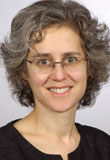 Susan Gelman has been a faculty member at the University of Michigan since 1984, where she is now the Frederick G. L. Huetwell Professor of Psychology. She is a Fellow of APS and a past president of the Cognitive Development Society. She served as a member of the Executive Board of the International Society of Infancy Studies, and the Board of Directors of the Jean Piaget Society. She received the APA Distinguished Scientific Award for Early Career Contribution to Psychology in the Developmental Area, the American Psychological Foundation Robert L. Fantz Award, the Chase Memorial Award, the Boyd McCandless Young Scientist Award from APA Division 7, She is an elected Fellow of the American Academy of Arts and Sciences, and has received numerous awards, including a J. S. Guggenheim Fellowship, and a James McKeen Cattell Fund sabbatical fellowship. Gelman’s research focuses on concept and language development in young children.
Susan Gelman has been a faculty member at the University of Michigan since 1984, where she is now the Frederick G. L. Huetwell Professor of Psychology. She is a Fellow of APS and a past president of the Cognitive Development Society. She served as a member of the Executive Board of the International Society of Infancy Studies, and the Board of Directors of the Jean Piaget Society. She received the APA Distinguished Scientific Award for Early Career Contribution to Psychology in the Developmental Area, the American Psychological Foundation Robert L. Fantz Award, the Chase Memorial Award, the Boyd McCandless Young Scientist Award from APA Division 7, She is an elected Fellow of the American Academy of Arts and Sciences, and has received numerous awards, including a J. S. Guggenheim Fellowship, and a James McKeen Cattell Fund sabbatical fellowship. Gelman’s research focuses on concept and language development in young children.
Julie Mennella, Monnell Chemical Senses Center
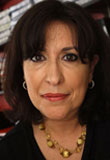 Julie Mennella obtained a Ph.D. from the Department of Behavioral Sciences at The University of Chicago. She subsequently did postdoctoral work in the role of olfaction and taste in human development at the Monell Chemical Senses Center, where she has been a faculty member since 1990. Mennella delivered the Bring the Family Address at the APS Annual Convention in 2010. Her major research interests include the transfer of flavors from the mother’s diet to both amniotic fluid and mother’s milk; the role of genetics and culture on the establishment of food habits; identifying factors contributing to individual differences in taste and odor sensitivity and preferences; and the effects of alcohol and tobacco use on various aspects of women’s health and mother-child interaction. In addition to her research, she developed and directed a program at Monell Center from 1991 to 2007 that encouraged under-represented minority high school and undergraduate students to pursue careers in science and medicine.
Julie Mennella obtained a Ph.D. from the Department of Behavioral Sciences at The University of Chicago. She subsequently did postdoctoral work in the role of olfaction and taste in human development at the Monell Chemical Senses Center, where she has been a faculty member since 1990. Mennella delivered the Bring the Family Address at the APS Annual Convention in 2010. Her major research interests include the transfer of flavors from the mother’s diet to both amniotic fluid and mother’s milk; the role of genetics and culture on the establishment of food habits; identifying factors contributing to individual differences in taste and odor sensitivity and preferences; and the effects of alcohol and tobacco use on various aspects of women’s health and mother-child interaction. In addition to her research, she developed and directed a program at Monell Center from 1991 to 2007 that encouraged under-represented minority high school and undergraduate students to pursue careers in science and medicine.
Candidates for Member-at-Large (Slate 2)
Lisa Feldman Barrett, Northeastern University
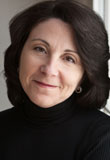 Lisa Feldman Barrett is Director of the Interdisciplinary Affective Science Laboratory (IASLab) and Distinguished Professor of Psychology at Northeastern University, with research appointments at Harvard Medical School and Massachusetts General Hospital. Barrett is a Fellow of APS, and an elected Fellow of the American Association for the Advancement of Science, the Society for Personality and Social Psychology (SPSP), and the Society for Experimental Social Psychology. She has previously served on the Executive Board of SPSP, and is currently a member of the National Academy of Sciences’ Board on Behavioral, Cognitive, and Sensory Sciences. Barrett’s research focuses on the nature of emotion and mind-brain correspondence more generally. Her research is multi-disciplinary and spans social, personality, clinical, cognitive and neuroscience perspectives. In 2007, Barrett received an NIH Director’s Pioneer Award for her research.
Lisa Feldman Barrett is Director of the Interdisciplinary Affective Science Laboratory (IASLab) and Distinguished Professor of Psychology at Northeastern University, with research appointments at Harvard Medical School and Massachusetts General Hospital. Barrett is a Fellow of APS, and an elected Fellow of the American Association for the Advancement of Science, the Society for Personality and Social Psychology (SPSP), and the Society for Experimental Social Psychology. She has previously served on the Executive Board of SPSP, and is currently a member of the National Academy of Sciences’ Board on Behavioral, Cognitive, and Sensory Sciences. Barrett’s research focuses on the nature of emotion and mind-brain correspondence more generally. Her research is multi-disciplinary and spans social, personality, clinical, cognitive and neuroscience perspectives. In 2007, Barrett received an NIH Director’s Pioneer Award for her research.
Valerie Reyna, Cornell University
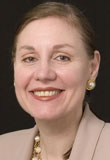 Valerie Reyna is Professor and Co-Director of the Center for Behavioral Economics and Decision Research at Cornell University. She is a developer of fuzzy-trace theory, a model of memory and decision making, which has been applied in law, medicine, and public health. Her recent work has focused on numeracy and quantitative reasoning, risk perception and risk taking, neurobiological models of development, and neurocognitive impairment and genetics. Currently Past President of the Society for Judgment and Decision Making, she has served on scientific panels of the U.S.’s National Academy of Sciences, National Institutes of Health and National Science Foundation. She is a Charter Member and Fellow of APS and a Fellow of the American Association for the Advancement of Science. She has also served in leadership roles in federal government and in organizations dedicated to equal opportunity for women and minorities.
Valerie Reyna is Professor and Co-Director of the Center for Behavioral Economics and Decision Research at Cornell University. She is a developer of fuzzy-trace theory, a model of memory and decision making, which has been applied in law, medicine, and public health. Her recent work has focused on numeracy and quantitative reasoning, risk perception and risk taking, neurobiological models of development, and neurocognitive impairment and genetics. Currently Past President of the Society for Judgment and Decision Making, she has served on scientific panels of the U.S.’s National Academy of Sciences, National Institutes of Health and National Science Foundation. She is a Charter Member and Fellow of APS and a Fellow of the American Association for the Advancement of Science. She has also served in leadership roles in federal government and in organizations dedicated to equal opportunity for women and minorities.
Yaacov Trope, New York University
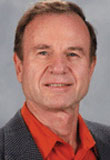 Yaacov Trope is Full Professor of Psychology at New York University. Trope’s research has focused on dual-mode processing of social information, self control, and the mental construal processes that afford predicting, emoting, and taking action with respect to psychologically distant objects. His recent work examines psychological distance effects, namely, how temporal, spatial, and social distances affect the representations of objects and, thereby, predictions, evaluations, and choice. Trope earned his PhD from the University of Michigan in 1974, and was a Fulbright Visiting Fellow in the United States from 1979 through 1980. He is a Fellow of APS and of the Center for Advanced Study in the Behavioral Sciences at Stanford. Trope has also served on various scientific committees for the U.S. federal government, and has been Associate Editor for several psychology journals.
Yaacov Trope is Full Professor of Psychology at New York University. Trope’s research has focused on dual-mode processing of social information, self control, and the mental construal processes that afford predicting, emoting, and taking action with respect to psychologically distant objects. His recent work examines psychological distance effects, namely, how temporal, spatial, and social distances affect the representations of objects and, thereby, predictions, evaluations, and choice. Trope earned his PhD from the University of Michigan in 1974, and was a Fulbright Visiting Fellow in the United States from 1979 through 1980. He is a Fellow of APS and of the Center for Advanced Study in the Behavioral Sciences at Stanford. Trope has also served on various scientific committees for the U.S. federal government, and has been Associate Editor for several psychology journals.
Click here to vote
Presidential and Board terms officially commence at the close of the APS Annual Convention in May. The results of the election will be announced in the September Observer.
Thank you for your participation.

